- Home
- / CL Answers
- / Do any supplements or lifestyle changes reduce the symptoms of tinnitus? Is it true that some supplements can cause tinnitus?
www.consumerlab.com/answers/do-any-supplements-help-for-tinnitus/tinnitus/
Save to favorites
This feature is restricted to active members.
Join now to save favorites and get all member benefits, including over 1,400 reviews.
Join NowAlready a member? Sign in here.

Our Members Asked:
Do any supplements or lifestyle changes reduce the symptoms of tinnitus? Is it true that some supplements can cause tinnitus?
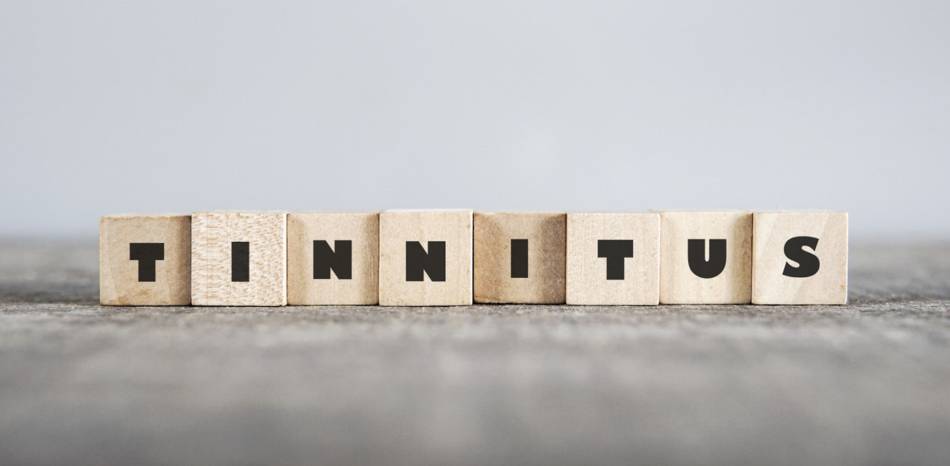
Answer:
Several supplements are promoted for reducing symptoms of tinnitus, or ringing in the ear, but only three are supported by clinical evidence — and that evidence remains preliminary. In fact, some experts advise against the use of any herbal or nutritional supplement to reduce symptoms of tinnitus due to lack of quality evidence and lack of oversight and testing to ensure products are safe and contain what is claimed on the label before they are sold (LaGuinn, JAMA Otolaryngol Head Neck Surg 2025).
Certain dietary supplements have been associated with onset or worsening of tinnitus, as have medications such as pain relievers (aspirin and ibuprofen), opioids, antibiotics, antidepressants, and blood-pressure lowering drugs.
Sign in as a member for details, including the effects on tinnitus of pine bark extract (Pycnogenol), iron, magnesium, melatonin, vitamin B-12, zinc, manganese, Ginkgo biloba, glycine, CoQ10, weight loss supplements, vitamin D, calcium, palmitoylethanolamide (PEA), helichrysum oil and caffeine, coffee and tea, and medications including antibiotics, benzodiazepines, blood-pressure lowering drugs, COVID-19 vaccines, pain relievers, proton pump inhibitors, and thyroid medication, as well as certain artificial sweeteners. Also find out if changes in weather or hearing tests worsen tinnitus.
The article also explains if cognitive behavioral therapy (CBT), stimulation devices such as Duo and Lenire, hearing aids, sound generators (including white noise generators), tinnitus retraining therapy, dietary changes (such as reducing sugar, salt, or caffeine and increasing fiber) and exercise can be beneficial for tinnitus.
In addition the results of its expert testing, ConsumerLab uses only high-quality, evidence based, information sources. These sources include peer-reviewed studies and information from agencies such as the FDA and USDA, and the National Academy of Medicine. On evolving topics, studies from pre-print journals may be sourced. All of our content is reviewed by medical doctors and doctoral-level experts in pharmacology, toxicology, and chemistry. We continually update and medically review our information to keep our content trustworthy, accurate, and reliable. The following sources are referenced in this article:
- Almufarrij, Int J Audiol 2021
- Attarha, JAMA Otolaryngol Head Neck Surg 2018
- Basura, Otolaryngol Head Neck Surg 2020
- Berkiten, B-ENT 2013
- Beukes, Am J Audiol 2021
- Clewes, Prim Care Companion CNS Disord 2012
- Cochran, Ann Otol Rhinol Laryngol 1979
- Coelho, Otol Neurotol 2013
- Conlon, Sci Transl Med 2020
- Dadgarnia, Am J Otolaryngol 2023
- Dalrymple, Am Fam Physician 2021
- Del Bo, Prog Brain Res 2007
- FDA, Wellbutrin prescribing information
- Figueiredo, Front Neurol 2016
- Figueiredo, Prog Brain Res 2021
- Hoffmeister, Aust J Gen Pract 2019
- Hsu, Sci Rep 2022
- Hysingla ER Prescribing Information
- Jastreboff, ENT 2015
- Kim, Healthcare 2021
- LaGuinn, JAMA Otolaryngol Head Neck Surg 2025
- Lavinsky, Int Tinnitus J 2004
- Ledesma PLoS One 2021
- Levine, Handbook of Clinical Neurology 2015
- Markus, Eur Arch Otorhinolaryngol 2023
- Mazurek, HNO 2022
- Mozeika, J Med Toxicol 2020
- Mueller, JAMA Otolaryngol Head Neck Surg 2024
- NICE Guideline No 155, March 2020
- Perrotta, bioRxiv 2022 — preprint
- Pribek, AMA Arch Intern Med 1957
- Prilosec Prescribing Information
- Rustom, BMJ 2005
- Schmidt, Otol Neurotol 2017
- Seligmann, Drug Saf 1996
- Settle, J Clin Psychiatry 1991
- Singh, Indian J Otolaryngol Head Neck Surg 2019
- Sunwoo, Auris Nasus Larynx 2018
- Tang, Nutrients 2021
- Tunkel, Otolaryngol Head Neck Surg 2014
- Waechter, Am J Audiol 2022
- Wang, Front Endocrinol 2021
- Yee, Br J Clin Pharmacol 2022
- Yih, Am J Otolarngol 2024
- Özbey-Yücel, Clin Nutr ESPEN 2021
Join today to unlock all member benefits including full access to all CL Answers and over 1,400 reviews.
Join NowAlready a member? Sign In Here.
Join now at www.consumerlab.com/join/
Agree to Comment Terms
Please abide by the following:
- If you make a statement of fact, such as whether a type of treatment does or does not work, state your basis -- such as personal experience or a published study.
- If you make a positive or negative comment about a product, note whether or not you have a financial interest in the product or in a competing product.
- Please be respectful in your tone.
- Please do not submit any type of HTML markup or scripting as it will not be accepted, nor will posts that exceed 2,500 characters.
For your privacy, only your first name (from your account) followed by a random number will appear with your comment. Your last name and email address will not be displayed.
Your comment has been submitted
We will review your comment before it is posted.

Related Reviews (6)
Latest Research Updates (Clinical Updates)
Tinnitus & COVID-19 Vaccination
April 03, 2025
Iron Deficiency and Tinnitus?
March 31, 2025
Can iron deficiency cause tinnitus (ringing in the ears)? Find out in the Iron Deficiency and Anemia section of our Iron Supplements Review, which includes our Top Picks among iron supplements.
Also see our article about tinnitus and supplements.
Glycine for Tinnitus?
March 17, 2025
Does taking glycine reduce the frequency or severity of tinnitus (ringing in the ears). Find out what’s known in our article about glycine.
CoQ10 for Tinnitus?
January 30, 2025
Did taking CoQ10 reduce the severity of tinnitus (ringing in the ears) in a recent study? Find out in the Tinnitus section of our CoQ10 & Ubiquinol Supplements Review, which includes our Top Picks for CoQ10 and ubiquinol.
Also see our article about supplements that may help or worsen tinnitus, which includes information about lifestyle modifications that may help and medications that may cause tinnitus.
Tinnitus: Does Cognitive Therapy Work?
August 15, 2024
Tinnitus Affected by Weather or Hearing Tests?
October 24, 2023
Do changes in weather or taking a hearing test worsen tinnitus (ringing in the ears)? Find out in our article about supplements and lifestyle changes for tinnitus.
Tinnitus: Pros and Cons of White Noise
September 19, 2023
White noise may reduce ringing in the ears from tinnitus, but there may be a downside to it. Learn more in our article about supplements and other approaches to tinnitus.
Also learn if pain medications may increase the risk of tinnitus.
Tinnitus, PPIs & Hearing Aids
September 15, 2023
Does use of proton pump inhibitors (PPIs), such as omeprazole (Prilosec), increase the risk of tinnitus? Find out, and also learn how other medications may affect tinnitus.
Also find out if wearing hearing aids reduces ringing in the ear from tinnitus.
Antidepressants and Tinnitus?
January 17, 2023
Find out if the antidepressant bupropion (Wellbutrin) can cause ringing in the ears (tinnitus), and see a list of other medications that may have this effect in our article about tinnitus.
Lifestyle Changes for Tinnitus?
January 13, 2023
Find out if research supports the following lifestyle changes for reducing symptoms of tinnitus:
Thyroid Medication & Tinnitus?
December 02, 2022
Does having thyroid disease, or taking the thyroid medication levothyroxine (Synthroid), cause tinnitus? Find out in our article about tinnitus, which includes information about the effects of more than one dozen medications, and whether supplements, such as PEA, can help.
Medications & Tinnitus
November 29, 2022
We’ve added information about medications that may cause tinnitus (ringing of the ears) to our CL Answer about tinnitus and supplements.
Manganese for Tinnitus?
April 12, 2022
Can taking manganese help treat symptoms of tinnitus? Find out what research suggests in the Manganese section of our Multivitamin Supplements Review. Also see our answer to the question: Do any supplements or lifestyle changes reduce the symptoms of tinnitus?
Related CL Answers (4)

Related Content
Join over 100,000 Members
Find the best products with instant access to our latest tests & reviews of over 1,400 health products.
Save money by finding high-quality products at lower cost.
Stay safe with the latest clinical findings, warnings, and expert answers.
Suggest products to test.
Stay informed with our e-newsletter.
Ratings of ConsumerLab

The "Updated" date indicates when new information was most recently added to this article. In the full article, the newest information is highlighted in yellow.
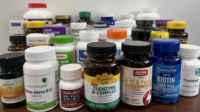
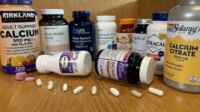
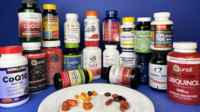
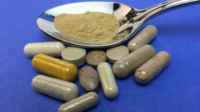
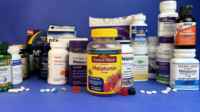
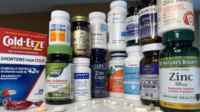


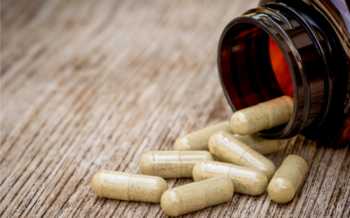






Submit your comment
This feature is restricted to active members.
Join now to add comments and get all member benefits, including over 1,400 reviews.
Join NowAlready a member? Sign in here.